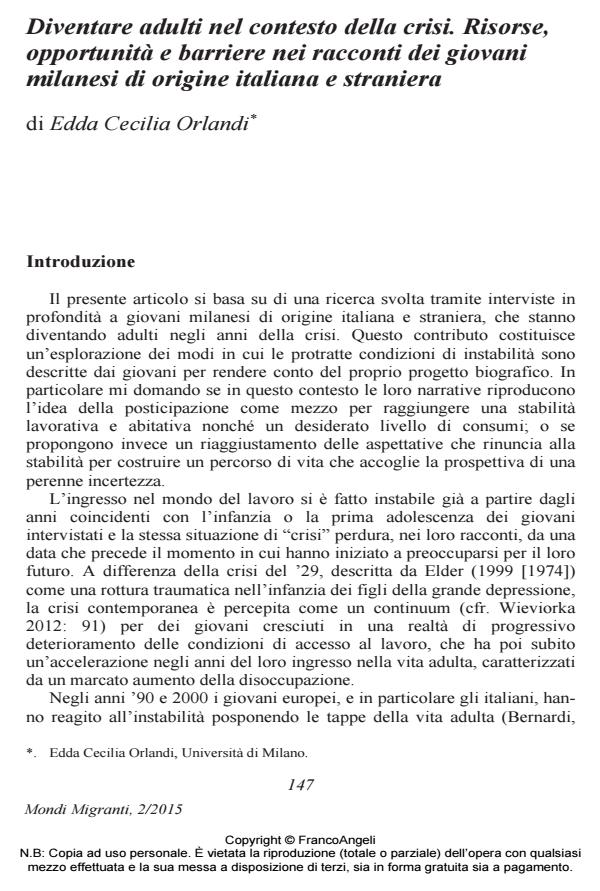Growing up during the crisis: resources, opportunities and constraints in the accounts of young Milanese from Italian and migrant backgrounds
Journal title MONDI MIGRANTI
Author/s Edda Cecilia Orlandi
Publishing Year 2015 Issue 2015/2
Language Italian Pages 22 P. 147-168 File size 78 KB
DOI 10.3280/MM2015-002006
DOI is like a bar code for intellectual property: to have more infomation
click here
Below, you can see the article first page
If you want to buy this article in PDF format, you can do it, following the instructions to buy download credits

FrancoAngeli is member of Publishers International Linking Association, Inc (PILA), a not-for-profit association which run the CrossRef service enabling links to and from online scholarly content.
The article presents preliminary results of a research based on in-depth interviews with young Milanese adults with Italian and migrant backgrounds who are experiencing the school-to-work transition in the years following the 2008 crisis. The author compares accounts of previous paths and future aspirations for young women and men, with low and high cultural capital. Emerging models of adulthood converge for female and male young university graduates, who are building flexible life trajectories and careers. Models of adulthood differ for less educated young men and women. The girls feel inadequate for a job market in which they feel unfit, in spite of their aspirations. This leads to an inability to project into the future beyond aspiring to have their own family. This aspiration is moreover described as distant and at present unfeasible. Instead, young men give an account based on a long-established model of adulthood, which they think will still be feasible for their lives, in spite of the present difficult economic conditions.
Keywords: Youth, crisis, aspirations, models of adulthood, cultural capital, Milan
- Young adult migrants’ representation of ethnic, gender and generational disadvantage in Italy Francesca Alice Vianello, Angela M. Toffanin, in Ethnic and Racial Studies /2021 pp.154
DOI: 10.1080/01419870.2020.1726429
Edda Cecilia Orlandi, Diventare adulti nel contesto della crisi. Risorse, opportunità e barriere nei racconti dei giovani milanesi di origine italiana e straniera in "MONDI MIGRANTI" 2/2015, pp 147-168, DOI: 10.3280/MM2015-002006